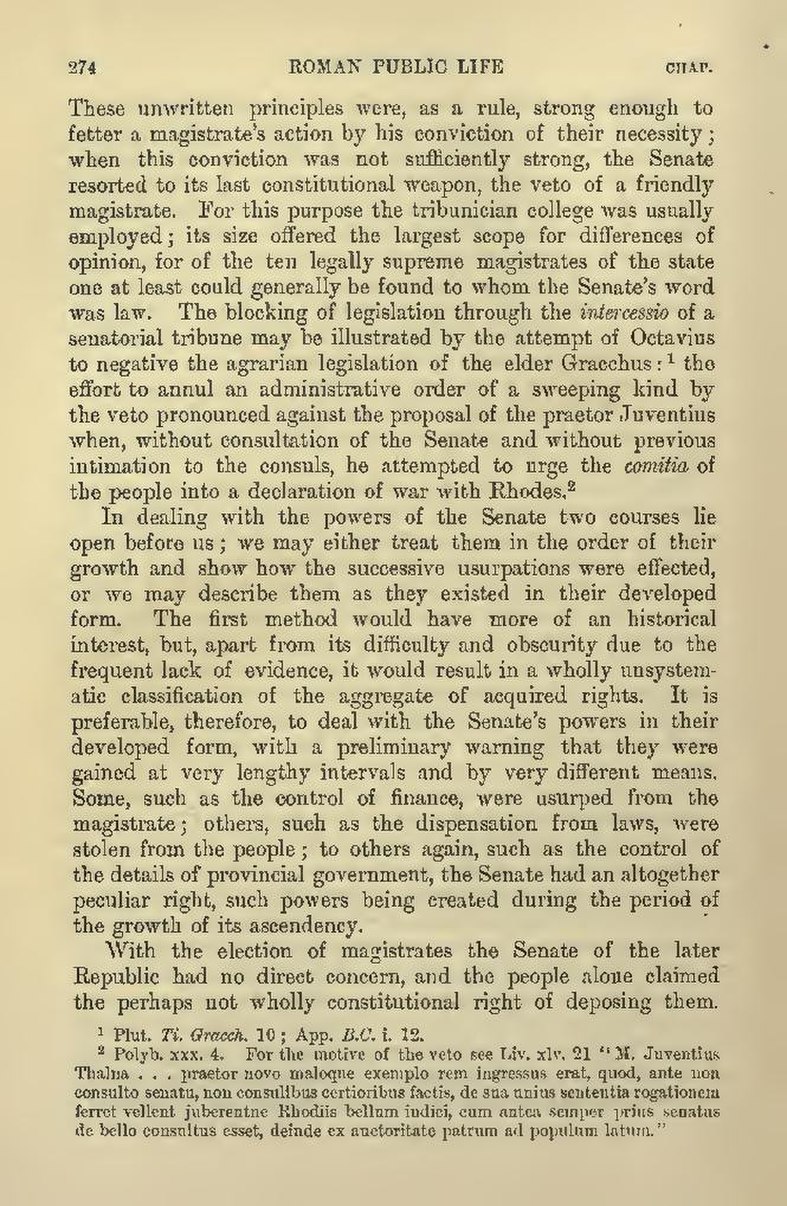These unwritten principles were, as a rule, strong enough to fetter a magistrate's action by his conviction of their necessity; when this conviction was not sufficiently strong, the Senate resorted to its last constitutional weapon, the veto of a friendly magistrate. For this purpose the tribunician college was usually employed; its size offered the largest scope for differences of opinion, for of the ten legally supreme magistrates of the state one at least could generally be found to whom the Senate's word was law. The blocking of legislation through the intercessio of a senatorial tribune may be illustrated by the attempt of Octavius to negative the agrarian legislation of the elder Gracchus:[1] the effort to annul an administrative order of a sweeping kind by the veto pronounced against the proposal of the praetor Juventius when, without consultation of the Senate and without previous intimation to the consuls, he attempted to urge the comitia of the people into a declaration of war with Rhodes.[2]
In dealing with the powers of the Senate two courses lie open before us; we may either treat them in the order of their growth and show how the successive usurpations were effected, or we may describe them as they existed in their developed form. The first method would have more of an historical interest, but, apart from its difficulty and obscurity due to the frequent lack of evidence, it would result in a wholly unsystematic classification of the aggregate of acquired rights. It is preferable, therefore, to deal with the Senate's powers in their developed form, with a preliminary warning that they were gained at very lengthy intervals and by very different means. Some, such as the control of finance, were usurped from the magistrate; others, such as the dispensation from laws, were stolen from the people; to others again, such as the control of the details of provincial government, the Senate had an altogether peculiar right, such powers being created during the period of the growth of its ascendency.
With the election of magistrates the Senate of the later Republic had no direct concern, and the people alone claimed the perhaps not wholly constitutional right of deposing them.
- ↑ Plut. Ti. Gracch. 10; App. B.C. i. 12.
- ↑ Polyb. xxx. 4. For the motive of the veto see Liv. xlv. 21 "M. Juventius Thalna . . . praetor novo maloque exemplo rem ingressus erat, quod, ante non consulto senatu, non consulibus certioribus factis, de sua unius sententia rogationem ferret vellent juberentne Rhodiis bellum indici, cum antea semper prius senatus de bello consultus esset, deinde ex auctoritate patrum ad populum latum."
